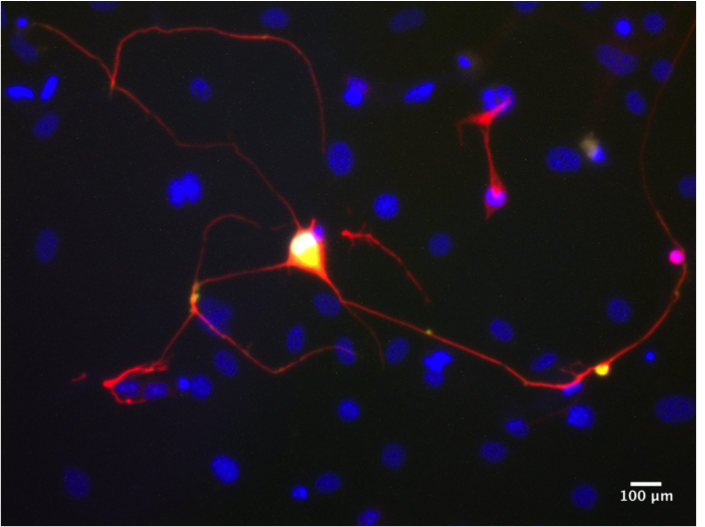Overview
 Aging is the single greatest risk factor for neurodegeneration, yet the mechanisms responsible remain poorly understood. Ashley Webb, Richard and Edna Salomon Assistant Professor of Molecular Biology, Cell Biology and Biochemistry, received an innovation award in 2019 from the Carney Institute to establish a new system to study how neurons age. She is developing a cell reprogramming platform, called “direct reprogramming,” to study aging in the hypothalamus brain region. The hypothalamus controls critical processes, such as sleep, temperature regulation, eating and metabolism, which can become dysregulated with aging. With direct reprogramming, Webb and her team are able to convert a skin cell, for example, into a brain cell that maintains the hallmarks of aging.
Aging is the single greatest risk factor for neurodegeneration, yet the mechanisms responsible remain poorly understood. Ashley Webb, Richard and Edna Salomon Assistant Professor of Molecular Biology, Cell Biology and Biochemistry, received an innovation award in 2019 from the Carney Institute to establish a new system to study how neurons age. She is developing a cell reprogramming platform, called “direct reprogramming,” to study aging in the hypothalamus brain region. The hypothalamus controls critical processes, such as sleep, temperature regulation, eating and metabolism, which can become dysregulated with aging. With direct reprogramming, Webb and her team are able to convert a skin cell, for example, into a brain cell that maintains the hallmarks of aging.
Starting from mouse skin cells, Webb’s group generated rare hypothalamic brain cells, called POMC neurons, that are important for metabolic health and weight control. Normally, these cells trigger satiety (the feeling of being full), but they lose the ability to do so as they age.
Webb is applying the same approach to create POMC neurons from human cells, which for the first time will allow researchers to generate rare types of human neurons that are physiologically aged. Her team hopes to use the direct reprogramming approach to generate neurons from individuals with brain diseases and disorders, such as Alzheimer’s.
Project Lead
- Ashley Webb, Richard and Edna Salomon Assistant Professor of Molecular Biology, Cell Biology and Biochemistry